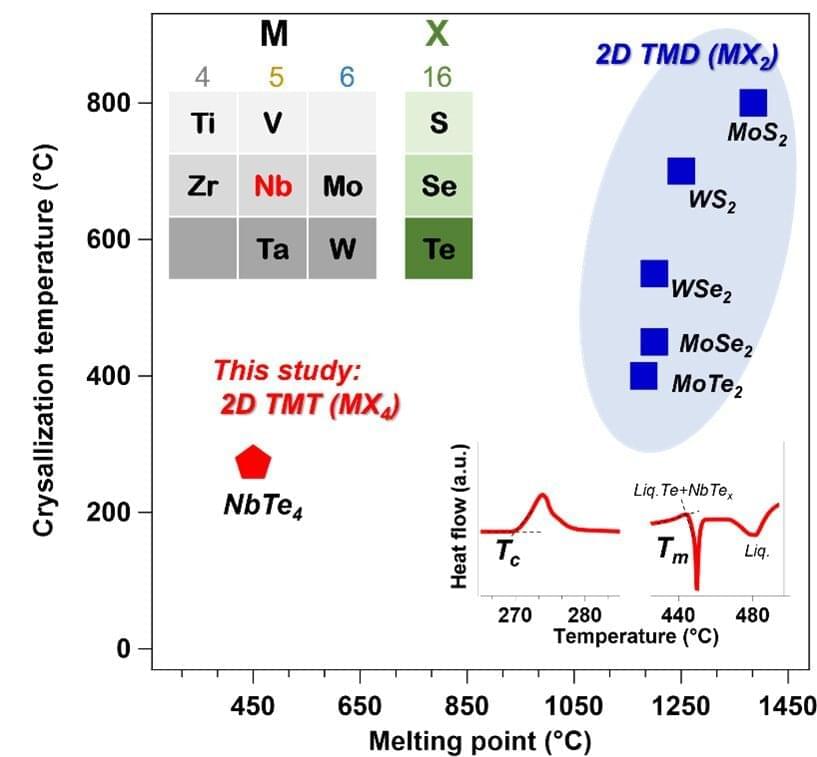Phase change memory is a type of nonvolatile memory that harnesses a phase change material’s (PCM) ability to shift from an amorphous state, i.e., where atoms are disorganized, to a crystalline state, i.e., where atoms are tightly packed close together. This change produces a reversible electrical property which can be engineered to store and retrieve data.
While this field is in its infancy, phase change memory could potentially revolutionize data storage because of its high storage density, and faster read and write capabilities. But still, the complex switching mechanism and intricate fabrication methods associated with these materials have posed challenges for mass production.
In recent years, two-dimensional (2D) Van Der Waals (vdW) transition metal di-chalcogenides have emerged as a promising PCM for usage in phase change memory.
